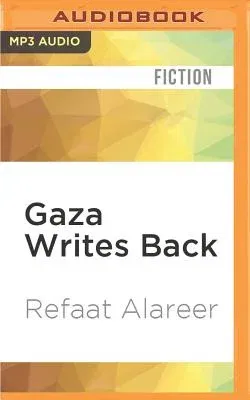Gaza Writes Back: Short Stories from Young Writers in Gaza, Palestine,
edited by Refaat Alareer, is a compelling collection of short stories
from 15 young writers in Gaza, members of a generation that has suffered
immensely under Israel's siege and blockade. Their experiences,
especially during and following Israel's 2008-2009 offensive known as
Operation Cast Lead, have fundamentally impacted their lives and their
writing. Indeed, many of these writers saw the war as a catalyst for
their writing, as they sought an outlet and a voice in its aftermath.
They view the book as a means of preserving Palestinian memories and
presenting their own narratives to the world without filters.
Their words take us into the homes and hearts of moms, dads, students,
children, and elders striving to live lives of dignity, compassion, and
meaning in one of the world's most embattled communities. (Some of the
stories also take us with courage and empathy into the imagined world of
Israelis living just on the other side of the great barriers Israel has
built in and around Gaza and the West Bank to wall the Palestinians in.)
These stories are acts of resistance and defiance, proclaiming the
endurance of Palestinians and the continuing resilience and creativity
of their culture in the face of ongoing obstacles and attempts to
silence them. Whether tackling the tragedy that surrounds missile
strikes and home raids or the everyday indignities encountered by
Palestinian refugees, Gaza Writes Back brings to life the real issues
that the people of Gaza face.
One prominent theme in many of the stories is the value placed on the
wisdom of parents and grandparents. A sense of longing pervades the
book, as the characters in the stories reveal desires ranging from the
mundane to the complex--including, in several of the stories, a strong
yearning to return to the characters' long-cherished family homes and
properties after many decades in exile from them. Social differences
within Gaza are also sensitively explored. A few stories are especially
difficult--but critical--to digest due to the vividness with which they
depict the experiences of victims of Israeli military strikes and
confront the legacy of violence and occupation, particularly on young
people.

